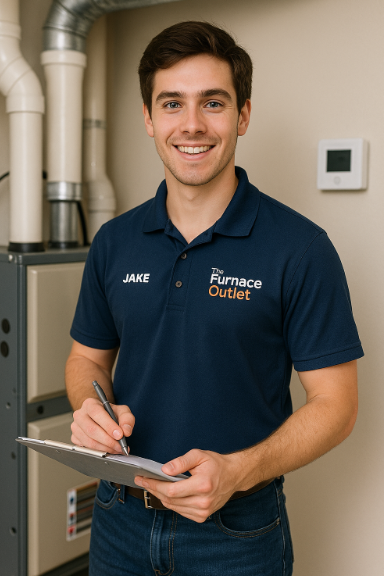Hey, Jake Lawson here. If you’ve ever been in the HVAC game or just tried to keep your home cool through a brutal summer, you know how critical a solid compressor is to your air conditioner’s performance. Today, I’m breaking down the lowdown on American Standard AC compressors—what makes them tick, why they’re respected, and how they compare to other compressor types on the market.
We’ll also touch on the role compressors play in the bigger picture of your HVAC system, especially when you’re shopping for smart, efficient units like the Goodman 3 Ton 14.5 SEER2 R-32 bundle.
What Is an AC Compressor and Why It Matters
First, let’s clear the basics for anyone not deep in HVAC jargon.
Your AC compressor is the heart of your air conditioning system. It compresses refrigerant gas, turning it into a high-pressure, high-temperature gas that flows through your condenser coil, where it cools down and eventually cools your home.
Without a reliable compressor, your system can’t push refrigerant effectively, which leads to poor cooling, higher energy bills, and expensive repairs.
Why American Standard Compressors Are Trusted
American Standard is well-known for building durable, reliable HVAC equipment—and their compressors are no exception. They typically use scroll compressors, which are prized for:
-
Energy Efficiency: Scroll compressors offer smoother, quieter operation and use less electricity compared to older piston-style compressors. (DOE Energy Saver on HVAC Efficiency)
-
Reliability: Fewer moving parts mean fewer failures over time.
-
Better Cooling Performance: They maintain consistent pressure and refrigerant flow, which translates to better temperature control.
Because American Standard focuses on quality components, their compressors tend to have a longer lifespan, which is great for homeowners looking for long-term value.
Common Problems With AC Compressors and What to Watch For
No machine is perfect, and compressors can fail. Some common issues:
-
Overheating: Can cause compressor burnout if airflow is blocked or refrigerant levels are low.
-
Electrical Problems: Bad capacitors, relays, or wiring can cause compressor start failures.
-
Refrigerant Leaks: Low refrigerant puts extra strain on compressors.
-
Age and Wear: Even the best compressors wear out after 10–15 years.
If you notice your AC blowing warm air, making loud noises, or your energy bills spike without reason, the compressor might be the culprit. An HVAC tech can diagnose and repair or replace as needed.
How Does American Standard Compare to Other Compressor Brands?
You’ll see other compressor brands like Copeland, Emerson, or even OEM parts. American Standard typically uses high-quality, sometimes branded compressors (often Copeland scrolls) in their units.
For a detailed comparison of other brands, check out this analysis from Rigid HVAC, which breaks down the pros and cons of scroll vs piston compressors, energy efficiency, and reliability.
How the Compressor Fits Into Your HVAC System Purchase Decision
When you’re shopping for a new AC unit or an entire HVAC system, the compressor type and quality can make or break your investment.
If you’re considering the Goodman 3 Ton 14.5 SEER2 R-32 bundle, you’re getting a system with a highly efficient compressor designed to meet modern standards—something American Standard also prioritizes.
For a broader look at how compressor technology impacts HVAC system efficiency, the AHRI and Energy Star sites have detailed performance specs worth checking.
Maintenance Tips to Extend Your Compressor’s Life
To keep your compressor running strong:
-
Replace air filters regularly to maintain airflow
-
Schedule annual professional maintenance to check refrigerant levels, electrical components, and clean coils
-
Keep outdoor unit clear of debris, leaves, and dirt
-
Address unusual noises or smells immediately
Small upkeep steps can keep costly compressor failures at bay and save you serious money in the long run.
When Should You Replace Your AC Compressor?
If your compressor fails, you’re faced with a decision: repair or replace. Depending on your system’s age, repair costs, and efficiency expectations, replacing the whole unit might be wiser.
Older American Standard units with compressors over 10 years old might benefit from a full replacement upgrade to newer, more efficient systems like the Goodman bundle, which uses R-32 refrigerant and meets the latest SEER2 standards.
Final Words From Jake
American Standard compressors have a reputation for quality and reliability, but like all HVAC components, they require care. If you’re hunting for a durable, efficient system, look for brands that invest in top-tier compressors—and remember, your compressor is the heart of your AC.
Want cutting-edge efficiency and solid reliability? The Goodman 3 Ton 14.5 SEER2 R-32 bundle is a worthy contender in that space.
Stay cool out there,
—Jake Lawson







